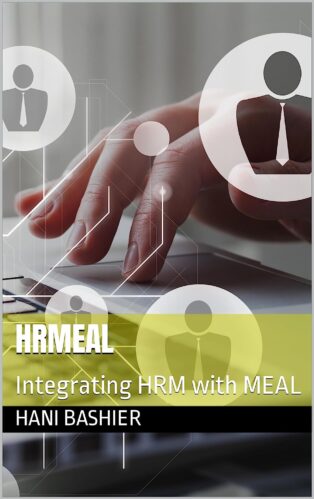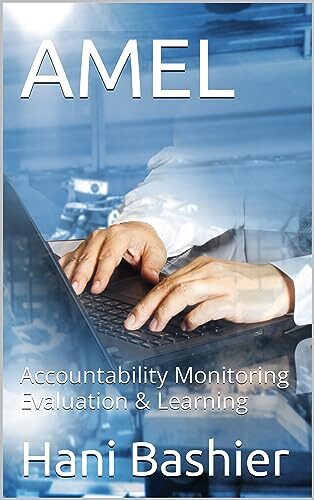The Secrets to Success in Monitoring, Evaluation, Accountability, and Learning: A Comprehensive Guide
Monitoring, evaluation, accountability, and learning (MEAL) are essential components of effective project management, particularly within the non-profit and international development sectors. The MEAL framework enables organizations to track progress, assess the impact of their interventions, ensure accountability to stakeholders, and adapt their strategies based on learnings. In this comprehensive guide, we will reveal the secrets to success in MEAL, drawing on best practices and expert insights to help you optimize your project management processes.
Understanding MEAL: An Overview
Before delving into the secrets to success, it’s crucial to have a clear understanding of the key concepts and components that make up the MEAL framework:
- Monitoring: The ongoing process of collecting and analyzing data to track project progress, ensuring that activities are on schedule, and identifying potential issues that may require adjustments to the project plan.
- Evaluation: The systematic assessment of a project’s design, implementation, and results, with the aim of measuring its effectiveness, efficiency, relevance, and sustainability. Evaluations help organizations understand the impact of their interventions and inform future decision-making.
- Accountability: The responsibility of organizations to their stakeholders, including beneficiaries, donors, and partners, to ensure that resources are used effectively and transparently, and that project outcomes align with stated objectives.
- Learning: The process of using information gathered through monitoring and evaluation to inform future project planning and implementation, adapting strategies based on evidence and experience to improve overall effectiveness.
Secret 1: Establish a Robust MEAL Framework
A well-designed MEAL framework serves as the foundation for successful project management. To create an effective MEAL framework, consider the following steps:
- Define clear objectives: Establish SMART (Specific, Measurable, Achievable, Relevant, Time-bound) objectives for your project, ensuring that they align with the overall goals of your organization and the needs of your target population.
- Develop indicators: Identify key performance indicators (KPIs) that will enable you to measure progress towards your objectives, focusing on both output (e.g., the number of beneficiaries reached) and outcome (e.g., the change in beneficiaries’ quality of life) indicators.
- Design data collection methods: Select appropriate methods for collecting data on your KPIs, such as surveys, interviews, focus groups, or direct observation, taking into account factors like cost, time, and cultural sensitivity.
- Establish a monitoring and evaluation plan: Create a detailed plan outlining the frequency and scope of monitoring and evaluation activities, ensuring that data collection and analysis are integrated into your project lifecycle.
Secret 2: Foster a Culture of Learning and Adaptation
Embracing continuous learning and adaptation is crucial to the success of your MEAL efforts. To foster a culture of learning within your organization, consider the following strategies:
- Promote reflection and critical thinking: Encourage team members to regularly reflect on project progress, challenges, and opportunities for improvement, using a variety of tools like lessons learned workshops, after-action reviews, or learning journals.
- Incorporate feedback loops: Establish mechanisms for capturing and incorporating feedback from stakeholders, including beneficiaries, donors, and partners, to ensure that your project remains responsive to their needs and priorities.
- Invest in capacity building: Provide training and ongoing support for staff on MEAL concepts and tools, empowering them to effectively engage in monitoring, evaluation, accountability, and learning activities.
Secret 3: Ensure Rigor and Quality in Data Collection and Analysis
Accurate, reliable data is the backbone of any effective MEAL system. To ensure rigor and quality in your data collection and analysis, consider the following best practices:
- Adopt mixed-methods approaches: Utilize a combination of quantitative and qualitative data collection methods to capture a comprehensive picture of your project’s progress and impact.
- Ensure data quality: Implement quality assurance measures, such as data triangulation, inter-rater reliability checks, or regular data audits, to ensure the accuracy and consistency of your data.
- Leverage technology: Employ digital tools, such as mobile data collection platforms, geographic information systems (GIS), or data visualization software, to streamline and enhance your data collection and analysis processes.
Secret 4: Communicate Results and Lessons Learned
Effective communication of your MEAL findings is vital to ensuring that stakeholders understand the value and impact of your work and that learnings inform future decision-making. To optimize your communication efforts, consider the following tips:
- Tailor your messaging: Customize your communication style and content to the needs and preferences of your target audience, ensuring that your message is clear, concise, and relevant.
- Utilize multiple channels: Leverage a variety of communication channels, such as reports, presentations, webinars, or social media, to reach a diverse range of stakeholders.
- Celebrate successes and acknowledge challenges: Be transparent about both your achievements and the challengesyou have encountered, fostering trust and credibility among your stakeholders and demonstrating your commitment to continuous improvement.
Secret 5: Integrate MEAL Throughout the Project Lifecycle
To maximize the benefits of your MEAL efforts, it’s essential to integrate monitoring, evaluation, accountability, and learning activities throughout the entire project lifecycle:
- Incorporate MEAL during project design: Ensure that MEAL considerations are integrated from the outset, including the development of SMART objectives, KPIs, and data collection methods.
- Implement ongoing monitoring: Regularly monitor project progress, using the data gathered to inform decision-making and adjust project activities as needed.
- Conduct periodic evaluations: Undertake evaluations at key milestones or at the project’s conclusion to assess impact and learn from your experiences.
- Apply learnings to future projects: Use the insights gained through your MEAL activities to inform the design and implementation of future projects, enhancing your organization’s overall effectiveness.
Conclusion
Mastering the secrets of monitoring, evaluation, accountability, and learning is critical to achieving success in project management, particularly within the non-profit and international development sectors. By establishing a robust MEAL framework, fostering a culture of learning and adaptation, ensuring rigor and quality in data collection and analysis, communicating results and lessons learned, and integrating MEAL throughout the project lifecycle, you can optimize your project management processes, maximize your impact, and deliver lasting, positive change for your target population.
As you embark on your MEAL journey, keep these secrets in mind, and remember that continuous improvement and adaptation are at the heart of effective project management. By embracing the principles of MEAL and applying the best practices outlined in this guide, you will be well-equipped to navigate the complexities of project management and drive meaningful, sustainable change in the communities you serve.







